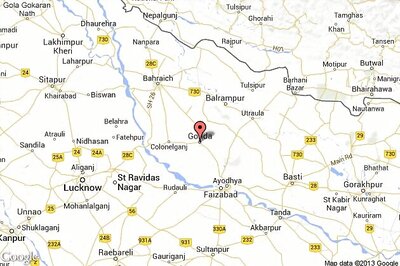
views
Islamabad: A battered al Qaeda suffered another significant blow when Pakistani agents working with the CIA arrested a senior leader believed to have been tasked by Osama bin Laden with targeting American economic interests around the globe, Pakistan announced on Monday.
Younis al-Mauritani's arrest - made public five days before the 10-year anniversary of the 9/11 attacks - was seen as damaging al Qaeda's central leadership in Pakistan, further degrading its ability to mount terrorist attacks abroad. The terrorist organization has seen its senior ranks thinned since Osama bin Laden was killed May 2 along with Atiyah Abd al-Rahman, the group's No 2, in a CIA missile strike last month.
Pakistan's public announcement of close cooperation with the US spy agency appeared aimed at reversing the widespread perception that ties between the CIA and Pakistan's Inter-Services Intelligence agency had been badly damaged by the US killing of bin Laden inside Pakistan.
The Pakistani military said the arrest of Mauritani and two other Qaeda operatives took place near the Afghan border in the southwestern city of Quetta, long known as a base for militants. It did not say when. The arrests were carried out in the past two weeks, according to a US official speaking on condition of anonymity to discuss intelligence matters.
The capture of an al Qaeda operative inside Pakistan has become rare in recent years: most targets of CIA operations in the country have been killed by drone aircraft in a relentless series of operations that started to increase in 2008. His capture is likely to create chaos within al Qaeda: even if he does not reveal compromising information, that possibility is almost certain to force the network to alter plans, move operatives and make a variety of other sudden changes damaging its ability to carry out attacks.
"This operation was planned and conducted with technical assistance of United State Intelligence Agencies with whom Inter-Services Intelligence has a strong, historic intelligence relationship. Both Pakistan and United States Intelligence agencies continue to work closely together to enhance security of their respective nations," the military said in a written statement.
al Qaeda's center of operations is believed to be in the lawless tribal areas of northwest Pakistan, many hours from Quetta, a large city that's home to both the Taliban's ruling council and a significant Pakistani military presence.
The statement said al-Mauritani was mainly responsible for al Qaeda's international operations and was tasked by bin Laden with hitting targets of economic importance in America, Europe and Australia. It said he was planning to target US economic interests including gas and oil pipelines, power generating dams and oil tankers by using explosive-laden speed boats in international waters.
It named the other two detainees as Abdul-Ghaffar al-Shami and Messara al-Shami. In its statement, the Pakistani army also described them as senior operatives.
US officials were not immediately available for comment. The US has said it doesn't know of any specific al Qaeda plot to attack the US ahead of September 11.
Since the 2001, attacks, Pakistan's spy agency has cooperated with the CIA to arrest scores of al Qaeda suspects, most of whom were handed over to the United States.
"This reflects how Pakistan and the United States working together can deal an effective blow to the terrorists," said Pakistan's ambassador to the US, Husain Haqqani. He said the intelligence cooperation had been restored almost to levels prior to a series of US-Pakistan diplomatic clashes.
Many top al Qaeda commanders are still believed to live in Pakistan, and getting Islamabad's cooperation in cracking down on the network has been a top American goal since 2001. But there have been persistent suspicions that the country was protecting militants. The fact that bin Laden was killed in an army town close to the capital, Islamabad, led to fresh doubts over Pakistan's commitment.
Michael Vickers, the Pentagon's under secretary of defense for intelligence, told The New York Times in a recent interview there were perhaps four important al Qaeda leaders left in Pakistan, and 10 to 20 leaders over all in Pakistan, Yemen and Somalia.

















Comments
0 comment